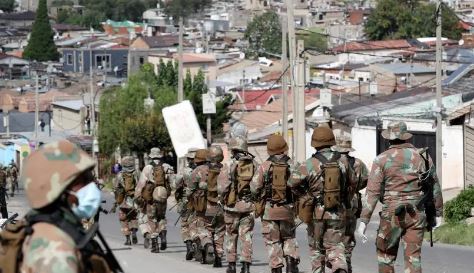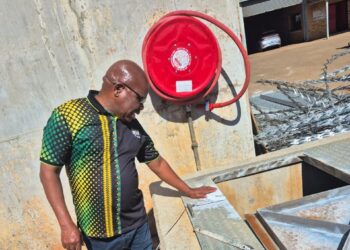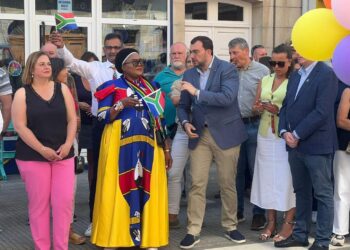MIDDELBURG – The National Coronavirus Command Council (NCCC) led by President Cyril Ramaphosa has declared a state of emergency amid the rising number of Coronavirus cases in the country.
The cases of the deadly coronavirus are increasing by the day and the country had more than 700 cases of the virus by Wednesday. Ramaphosa announced on Monday that the NCCC has decided to enforce a nation-wide lockdown for 21 days with effect from Thursday midnight, March 26, meaning that all South Africans will have to stay at home until midnight on Thursday 16 April.
“This is a decisive measure to save millions of South Africans from infection and save the lives of hundreds of thousands of people,” Ramaphosa said on Monday evening. “Individuals will not be allowed to leave their homes except under strictly controlled circumstances, such as to seek medical care, buy food, medicine and other supplies or collect a social grant,” Ramaphosa said.
“While this measure will have a considerable impact on people’s livelihoods, on the life of our society and on our economy, the human cost of delaying this action would be far, far greater,” he said. However, Ramaphosa’s announcement does not go down well with those who are struggling to make ends meet.
Unemployed Magdelina Modipana from Plein Secrion in Mhluzi told the Highveld Chronicle her concern is what will go under the nose during the lockdown period. “It is already difficult for me now to get something to eat, how am I going to survive because I live from hand to mouth,” she asked. “How do you lock me down for 21 days without food. This thing is done without thinking carefully,” she said.
Podisho Maleka from Mathailen in Mhluzi asked, “What are we going to do in this 21 days of lockdown because I am unemployed. We want government to help us get something to eat during the lockdown,” he said.
The Nasaret District Taxi Association (NDTA) is also concerned about the national lockdown saying it’s going to have a negative impact on its business as usage of public transport by commuters is expected to decrease during the 21-day lockdown period. They are projecting to lose more than R800 000 during the lockdown period on their 127 affiliated taxis which transport more 2, 000 commuters a day.
“We stand to lose that much, which means that we will be mostly affected if you consider the fact that most people heavily rely on taxis to go to and from work every day,” NDTA spokesperson, Doctor Silinda said. “Our members have got to pay instalments for these taxis every month and it is going to be difficult for them during the time of decreased business activity caused by the lockdown,” he said.
Silinda added: “Already some of our members are starting to panic thinking how this will affect their jobs because they will be transporting less loads of passengers than usual.”
In Middelburg, parents are concerned because they do not understand a decision by government to close libraries a week after it had closed schools amid the Coronavirus pandemic. The Mpumalanga Department of Culture, Sport and Recreation has taken a decision to close public libraries and museums with immediate effect.
This has brought some confusion to parents and school kids. “How are the kids supposed to catch up with the time they would have lost if libraries are also closed?” asked Mzwandile Sibeko, parent.
“They should be allowed to go to libraries under strict, controlled conditions because they just can’t sit at home doing nothing. We don’t have the luxury of buying large amount of data to enable them to make online researches,” he said.
























